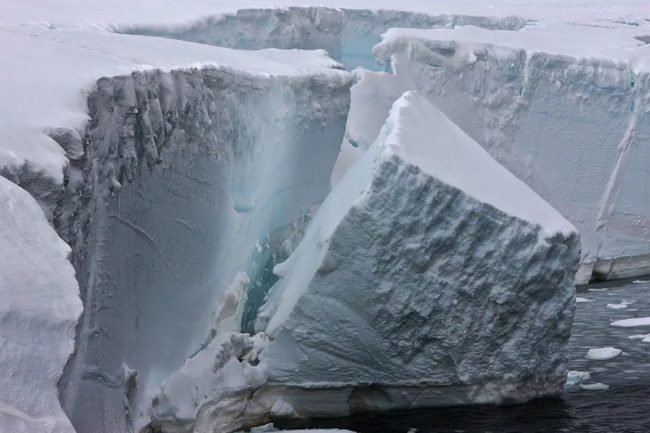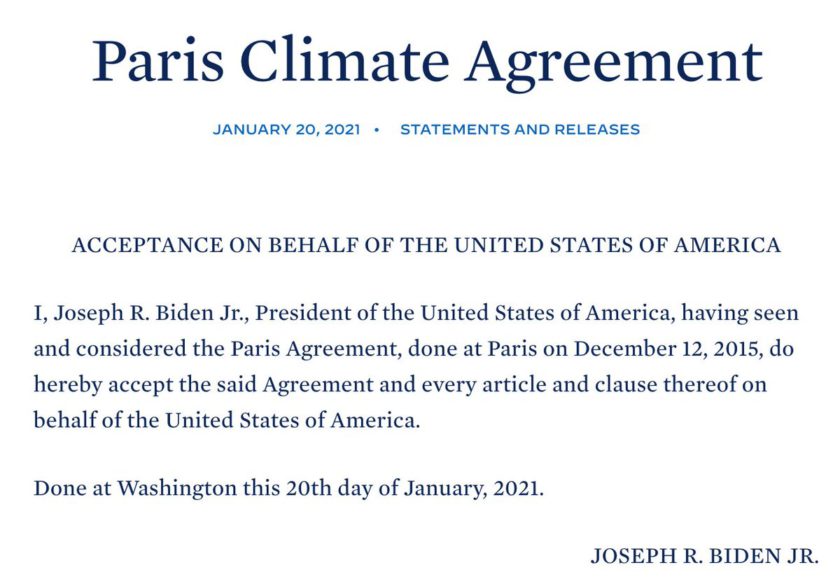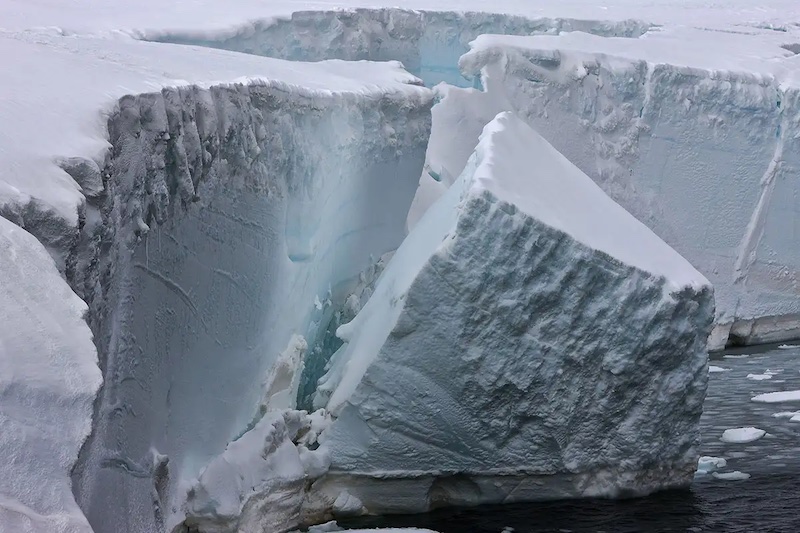
As preparation for the Davos Agenda (Jan 25-29, 2021 – where world leaders meet online) , Peter Giger, the Group Chief Risk Officer at Zurich Insurance Group has published on the World Economic Forum an article that highlights the risks that Climate Change is bringing. We are faced with potential tipping point risks.
His Posting is this one: Climate change will be sudden and cataclysmic. We need to act fast
Key Point He makes
We normally think of Climate Change as a gradual slow warming with small steady increases. The issue he brings to the table are the existence of tipping points …
- Tipping points could fundamentally disrupt the planet and produce abrupt change in the climate.
- A mass methane release could put us on an irreversible path to full land-ice melt, causing sea levels to rise by up to 30 metres.
- We must take immediate action to reduce global warming and build resilience with these tipping points in mind.
In other words, the point he is making is that currently we are playing a game of Jenga where the planet’s climate system is the tower, and we have been slowly removing blocks.
What specific Tipping Point risks does he refer to?
Collapse of a global ocean circulation system
One specific example he cites is the gulf stream, or to be a tad more precise, the Atlantic Meridional Overturning Circulation (AMOC).
Is this an unwarranted fear?
What is known is that Paleoceanographic reconstructions of AMOC vigour and configuration have revealed significant variations.
Methane release
He lays this out as follows …
One of the most concerning tipping points is mass methane release. Methane can be found in deep freeze storage within permafrost and at the bottom of the deepest oceans in the form of methane hydrates. But rising sea and air temperatures are beginning to thaw these stores of methane.
This would release a powerful greenhouse gas into the atmosphere, 30-times more potent than carbon dioxide as a global warming agent. This would drastically increase temperatures and rush us towards the breach of other tipping points.
This could include the acceleration of ice thaw on all three of the globe’s large, land-based ice sheets – Greenland, West Antarctica and the Wilkes Basin in East Antarctica. The potential collapse of the West Antarctic ice sheet is seen as a key tipping point, as its loss could eventually raise global sea levels by 3.3 metres with important regional variations.
More than that, we would be on the irreversible path to full land-ice melt, causing sea levels to rise by up to 30 metres, roughly at the rate of two metres per century, or maybe faster. Just look at the raised beaches around the world, at the last high stand of global sea level, at the end of the Pleistocene period around 120,0000 years ago, to see the evidence of such a warm world, which was just 2°C warmer than the present day.
Is this guy telling us we are all doomed?
No, that’s not his point, he is not advising that this is what will happen. Instead, he is spelling out worst case scenarios.
Risk is his speciality, its his job to understand actual risks.
None of the risks he highlights are inevitable. They are however distinctly real possibilities.
Part of the path to avoiding such outcomes is understanding the risks. With understanding you can then take appropriate steps to avoid such outcomes.
We don’t wear a seat belt because we expect to crash. Instead, we understand that an auto crash is distinctly possible, and if it should happen then wearing a seat belt greatly reduces your risk of death. Again, nobody expects to catch COVID-19, but we generally do understand that the risk is very real, and so wearing a mask greatly reduces your chance of getting it or spreading it.
This is what he is actually telling you
We need to act now on our climate. Act like these tipping points are imminent. And stop thinking of climate change as a slow-moving, long-term threat that enables us to kick the problem down the road and let future generations deal with it. We must take immediate action to reduce global warming and fulfil our commitments to the Paris Agreement, and build resilience with these tipping points in mind.
We need to plan now to mitigate greenhouse gas emissions, but we also need to plan for the impacts, such as the ability to feed everyone on the planet, develop plans to manage flood risk, as well as manage the social and geopolitical impacts of human migrations that will be a consequence of fight or flight decisions.
In other words – the risks are very real and we must act now to mitigate the very real risks that we now face.
Breaching these tipping points would be cataclysmic and potentially far more devastating than COVID-19. Some may not enjoy hearing these messages, or consider them to be in the realm of science fiction. But if it injects a sense of urgency to make us respond to climate change like we have done to the pandemic, then we must talk more about what has happened before and will happen again.
Otherwise we will continue playing Jenga with our planet. And ultimately, there will only be one loser – us.
We now have a COVID-19 vaccine. We now also have a US administration that truly does grasp the reality of the risk it poses and so finally meaningful effective steps will be taken.
This same US administration does also understand that climate change poses an ever greater risk than COVID-19. Because they do truly appreciate these risks, they are motivated to also take truly meaningful effective steps to mitigate it.
Biden’s Immediate Actions
When sworn into office, Biden did not sit back and enjoy the day, but went immediately to the oval office and issued 17 executive orders of significance. Here are a few of note …
COVID-19
- Launches a “100 Days Masking Challenge” asking Americans to wear masks for 100 days. Requires masks and physical distancing in federal buildings, on federal lands and by government contractors, and urges states and local governments to do the same.
- Stops the United States’ withdrawal from the World Health Organization, with Dr. Anthony Fauci becoming the head of the delegation to the WHO
- Creates the position of Covid-19 Response Coordinator, reporting directly to Biden and managing efforts to produce and distribute vaccines and medical equipment
Climate
- Rejoins the Paris climate accord, a process that will take 30 days
- Cancels the Keystone XL pipeline and directs agencies to review and reverse more than 100 Trump actions on the environment
Go here to see a summary of all 17 via CNN.
Bottom Line
If you do fully grasp reality and understand the risks you face, then you are empowered to take meaningful effective steps to manage those risks.
What is truly significant is that the administration that rejected fact as fiction and promoted fiction as fact is now gone. We really do have good reasons to hope for a far better future.
Personally, I’m going to really enjoy not being gaslit at every possible opportunity by delusional incompetent officials.
Paris Agreement
Here is the letter sent …

It has already been acknowledged.Officially the US will once again be part of the Paris Agreement on 19th February …

